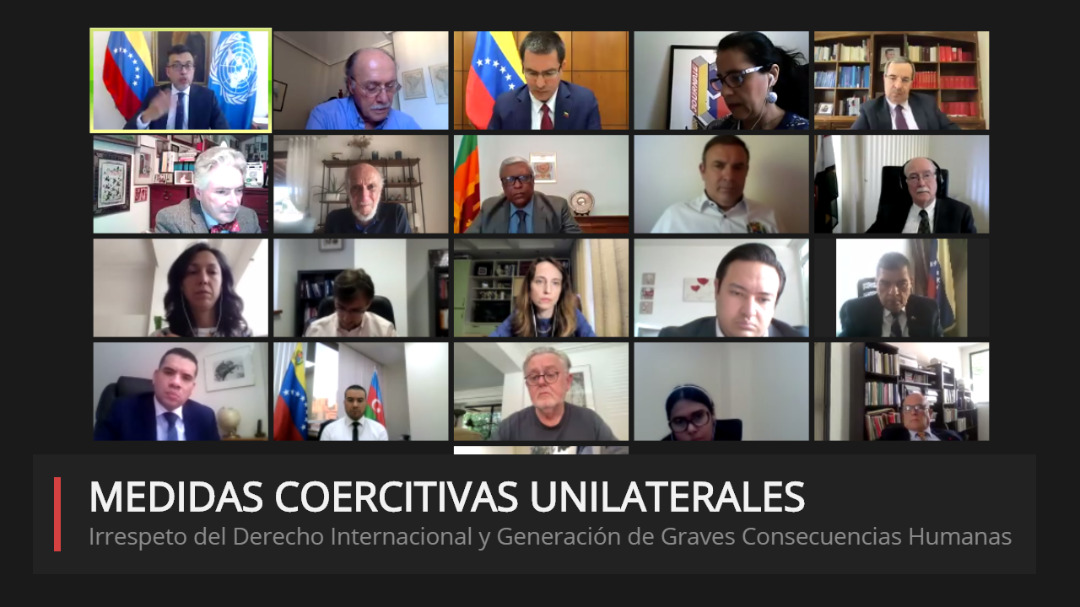On behalf of the Bolivarian Government of Venezuela, the People’s Power Minister for Foreign Relations, Jorge Arreaza, began this Wednesday the academic videoconference Unilateral Coercive Measures: Disrespect for International Law and serious human consequences, which he organizes for two days along with the School of Diplomacy and International Relations of Geneva.
The Foreign Minister explained that as a civilized country, Venezuela respects the United Nations Charter, which establishes when and how coercive measures are applied to a member state, that “they are never unilateral” and that they have a procedure, an evaluation, “they are not a political or ideological whim of a government of a particular country”.
He indicated that in February of this year, the UN Special Rapporteur on the negative impact of unilateral coercive measures on the enjoyment of human rights, Alena Douhan, visited the country and after her evaluation, in her report she reflected the devastating consequences in health, education, production and other sensitive areas of the Venezuelan population.
He also reiterated that the Obama Administration adviser, Richard Nephew, in his book “The Art of Sanctions”, recognizes that the objective of coercive measures is to generate pain to create favorable conditions for regime change. He noted that this work was incorporated into the lawsuit that Venezuela filed before the International Criminal Court against officials of the United States Government for crimes against humanity.
Venezuela denuncia ante la ONU impacto de medidas coercitivas unilaterales en la migración nacional
In his opening remarks at the international videoconference, Minister Arreaza stressed that the illegal nature of unilateral coercive measures, disguised as sanctions by the United States, is clearly established by the UN General Assembly itself in different debates and resolutions, as well as by its Human Rights Council; However, countries with arrogance and pretense of domination continue to apply them without consideration, even during the COVID-19 pandemic.
He added that last year, the UN High Commissioner for Human Rights, Michelle Bachelet and special rapporteurs raised their voices so that, at least, sanctions were relaxed in the framework of the pandemic and these multilateral demands were neglected.
The Foreign Minister specified that, as a result of the unilateral coercive measures, Venezuela has 6,000 million dollars blocked abroad, in addition to the confiscation of the Citgo company, with its refineries and network of service stations in the United States, among other assets of the Republic abroad. He pointed out that oil production has decreased by 99%, which according to experts is only comparable to a country subjected to a conventional war.
At the beginning of the activity, the permanent representative of Venezuela to the UN Geneva, Héctor Constant, reported that during this first day the special rapporteur Alena Douhan; the professor of Public International Law at the Autonomous University of Madrid, Antonio Remiro Brotons; the former independent UN expert on a democratic and equitable international order, Alfred de Zayas; Carmelo Borrego, Professor of Procedural Law at the Central University of Venezuela, and Richard Falk, Emeritus Professor of International Law at Princeton University, participated as speakers.
He thanked the connection to the activity of the foreign missions accredited to the UN Geneva of the countries: Nicaragua, Qatar, Syria, Zimbabwe, Pakistan, China, India, Iran, Sri Lanka, Belarus, Russia and Iraq.



